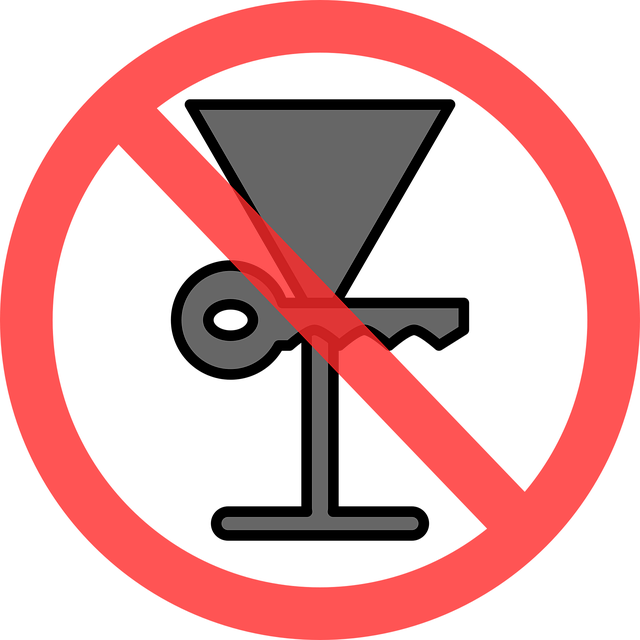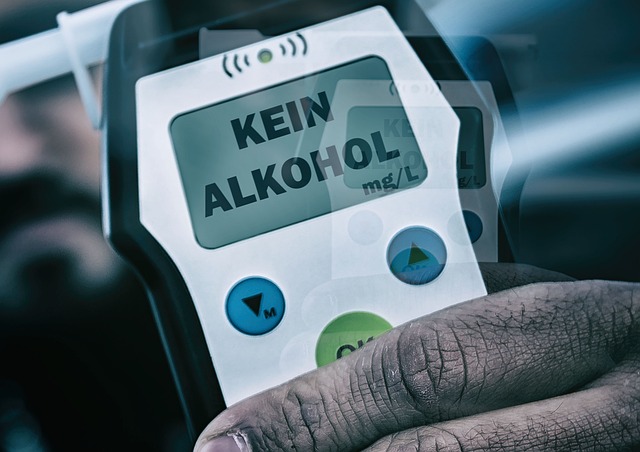In the ride-sharing industry, the balance between convenience and safety is crucial, especially regarding Drunk Driving Under Influence (DUI) incidents. While ride-sharing offers benefits, it raises concerns about driver intoxication posing risks to pedestrians. Enhancing accountability through stricter protocols, including advanced technologies, robust reporting systems, and stringent penalties, is vital to protect both passenger safety and pedestrians' rights. Swift authorities' actions and regular training promote responsible choices, ensuring a safer environment for all users.
In today’s digital age, ride-sharing services have revolutionized transportation. However, as these platforms grow, so do concerns about driver accountability, particularly in cases of drunk driving (DUI). This article delves into the complex dynamics between drivers and passengers, focusing on the risks faced by pedestrians in DUI incidents involving ride-sharing services. We explore legal aspects, passenger rights, and strategies to enhance driver responsibility, highlighting the importance of protecting everyone on the road, especially pedestrians, in these high-risk situations.
- Understanding Ride-Sharing Dynamics: A Glimpse into the Driver-Passenger Relationship
- Pedestrians at Risk: Exploring DUI Incidents Involving Ride-Sharing Drivers
- Legal Aspects and Passenger Rights: Protecting Those Affected by DUI Accidents
- Enhancing Accountability: Strategies for Ensuring Driver Responsibility and Passenger Safety
Understanding Ride-Sharing Dynamics: A Glimpse into the Driver-Passenger Relationship

In the dynamic world of ride-sharing, the relationship between drivers and passengers is a delicate balance. This unique connection involves a shared journey, where both parties have specific expectations and rights. Ride-sharing platforms have revolutionized transportation, offering convenience and accessibility to passengers while providing income opportunities for drivers. However, this arrangement also introduces complexities, especially when considering accountability in case of incidents.
One crucial aspect to explore is the interplay between pedestrians’ rights and driver responsibilities. In DUI (Drunk Driving Under Influence) incidents involving ride-sharing vehicles, understanding the dynamics becomes even more critical. Pedestrians’ safety is paramount, and drivers have a legal obligation to ensure it. When a ride-sharing driver is impaired, passengers’ rights may be inadvertently compromised, highlighting the need for clear protocols and driver accountability measures to protect all parties involved, especially when dealing with DUI-related cases.
Pedestrians at Risk: Exploring DUI Incidents Involving Ride-Sharing Drivers

In recent years, ride-sharing services have revolutionized transportation, offering convenience and safety to millions. However, a growing concern is the potential risk to pedestrians in cases of driver intoxication. DUI (Drunk Driving Under Influence) incidents involving ride-sharing drivers pose significant challenges to pedestrian rights and overall safety. When impaired drivers operate these vehicles, the consequences can be devastating, especially for those on foot who may find themselves in the path of an irresponsible driver.
These accidents highlight the need for better accountability measures. Ride-sharing companies must implement robust systems to detect and prevent intoxicated drivers from logging into their platforms. Additionally, stricter penalties and regular training sessions can help raise awareness about the dangers of driving under the influence, ensuring that drivers make responsible choices. Protecting pedestrians’ rights in DUI incidents is paramount, and these measures are crucial steps towards fostering a safer environment for everyone using ride-sharing services.
Legal Aspects and Passenger Rights: Protecting Those Affected by DUI Accidents

In the realm of ride-sharing, ensuring driver accountability is paramount, especially regarding legal aspects and passenger rights, particularly in DUI (driving under the influence) incidents. When a ride-sharing driver is found culpable of DUI, the consequences can significantly impact not just the driver but also passengers and pedestrians caught in these unfortunate events. Protecting the rights of those affected becomes a critical aspect of maintaining fairness and justice.
In such scenarios, passengers may face risks ranging from physical harm to legal repercussions. Therefore, it’s essential to establish clear guidelines and laws that safeguard their well-being. Similarly, Pedestrians Rights in DUI Incidents must be considered, as they too can suffer injuries or loss due to impaired drivers. Prompt action by authorities, including swift investigations and appropriate legal measures against negligent drivers, is crucial in mitigating these risks and ensuring accountability for any harm caused during DUI incidents involving ride-sharing services.
Enhancing Accountability: Strategies for Ensuring Driver Responsibility and Passenger Safety

Enhancing accountability among ride-sharing drivers is paramount for ensuring passenger safety and upholding pedestrians’ rights in DUI (Driving Under the Influence) incidents. Strategies to strengthen driver responsibility include rigorous screening processes, regular training on safety protocols, and implementing robust in-app reporting systems. These measures empower riders to immediately flag concerning behavior, enabling swift intervention by both the ride-sharing company and local authorities.
Furthermore, utilizing advanced technology like real-time tracking and predictive analytics can anticipate potential risks. This data-driven approach allows for proactive measures, such as rerouting drivers away from known high-risk areas or providing additional support during late-night shifts. By integrating these strategies, ride-sharing platforms can create a safer environment, protect passengers’ well-being, and uphold the rights of pedestrians affected by DUI incidents.
Ride-sharing services have revolutionized transportation, but it’s crucial to address the concerns surrounding driver accountability, especially in cases of DUI. By understanding the dynamics between drivers and passengers, recognizing the risks to pedestrians, and implementing strong legal frameworks, we can enhance passenger rights and ensure driver responsibility. Protecting those affected by DUI incidents is not just about safety; it’s about fostering a sustainable and reliable ride-sharing environment. Strategies for enhancing accountability must be adopted to maintain public trust in these services.






